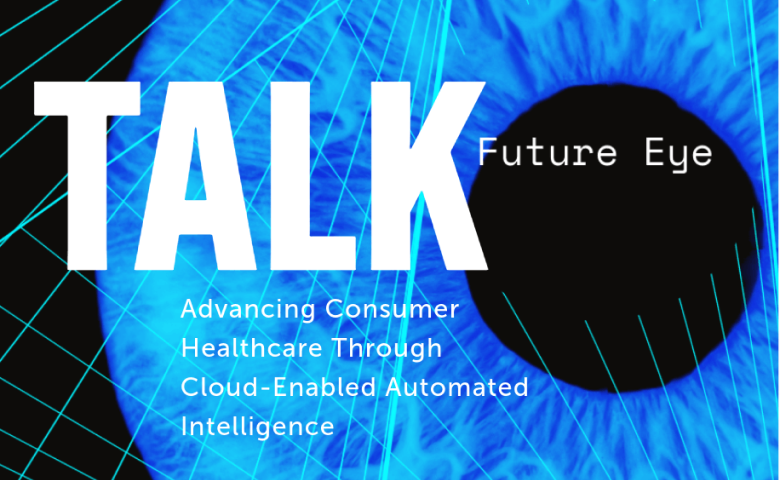
The convergence of cloud computing and automated intelligence is revolutionising consumer healthcare in the United Kingdom, delivering scalable, accessible, and bespoke solutions that empower individuals to manage their well-being proactively. Technologies such as symptom analysis platforms, virtual care assistants, and intelligent wearables leverage cloud infrastructure to process extensive datasets, provide real-time insights, and integrate seamlessly with healthcare systems. With the UK digital health market projected to grow at a compound annual growth rate (CAGR) of approximately 15% by 2025, these innovations align with the National Health Service’s (NHS) digital transformation objectives. However, challenges including data security under UK GDPR, AI reliability, and equitable access demand strategic focus. This journal examines the market potential and obstacles of cloud-enabled intelligent automation, offering evidence-based insights and actionable recommendations for stakeholders to lead in the UK health tech sector.
The UK healthcare landscape is undergoing a transformative shift, driven by consumer demand for immediate, tailored health solutions. Building on prior explorations of AI-driven consumer healthcare, this analysis focuses on the pivotal role of cloud computing in developing core valuable products that enhance well-being. Cloud infrastructure enables scalability, accessibility, and advanced analytics, positioning it as the cornerstone of intelligent health solutions. As the NHS accelerates its digital transformation, with 80% of trusts expected to adopt cloud-based systems by 2025, stakeholders must seize opportunities while addressing critical challenges like data security and inclusivity. Through a question-and-answer framework, this journal provides strategic insights into the integration of cloud-enabled automated intelligence, supported by reasoned arguments to guide UK health tech innovation.
Cloud-enabled automated intelligence encompasses AI systems hosted on cloud platforms that autonomously execute healthcare tasks, such as symptom evaluation, care coordination, and wellness monitoring. These systems leverage machine learning to analyse vast datasets, delivering precise, actionable insights. Cloud computing enhances these capabilities by providing:
This integration empowers consumers to manage health proactively, aligning with the UK’s shift toward individual-centric care models. The rationale is evident: cloud infrastructure scales AI solutions efficiently, meeting rising expectations for convenience and bespoke care.
Cloud-enabled intelligence redefines health management by delivering immediate, customised solutions. Symptom analysis platforms evaluate user inputs against medical databases, guiding care decisions without requiring immediate clinical visits. Virtual assistants streamline administrative tasks, such as scheduling, while intelligent wearables monitor metrics like heart rate, offering adaptive recommendations. Cloud infrastructure ensures seamless data synchronisation, enabling integration with NHS systems for coordinated care. This shift from reactive to preventive care enhances engagement and efficiency, particularly in the UK, where NHS integration is a priority. The argument is compelling: cloud-powered automation reduces system inefficiencies, enabling scalable, individual-focused solutions that meet modern healthcare demands.
Several applications illustrate the transformative potential of cloud-enabled AI:
These applications demonstrate how cloud computing amplifies AI’s impact, addressing diverse consumer needs from diagnostics to emotional support.
The UK health tech sector presents significant opportunities for cloud-enabled AI solutions:
These opportunities underscore the UK’s potential to lead in health tech, provided stakeholders leverage cloud infrastructure strategically.
Cloud-enabled AI delivers measurable benefits for UK consumers and healthcare systems:
The reasoning is clear: cloud infrastructure enhances AI’s scalability and accessibility, creating value for stakeholders while meeting consumer needs.
Despite its potential, cloud-enabled AI faces critical obstacles:
These challenges highlight the need for strategic governance to maximise benefits while mitigating risks in the UK’s regulated healthcare environment.
Cloud-enabled AI enhances accessibility by delivering instant health support, particularly for remote or underserved UK populations. Symptom analysis platforms and virtual assistants enable triage and consultations without physical barriers, aligning with NHS goals to improve access. However, digital disparities—such as limited connectivity in rural areas or low digital literacy among elderly consumers—threaten to exclude vulnerable groups. Strategic interventions, including affordable technology programs and intuitive interfaces, are essential to ensure inclusivity. The argument is robust: without broad access, cloud-enabled AI fails to deliver on its transformative promise, particularly in the UK’s diverse population.
A hypothetical scenario illustrates the impact of cloud-enabled AI:
Case Study: Rural UK Consumer
A consumer in a remote UK region experiences fatigue and uses a cloud-based symptom analysis platform. The tool, hosted on a secure cloud, processes symptoms against updated medical guidelines, recommending a teleconsultation. A cloud-powered virtual assistant schedules an NHS GP appointment, ensuring timely care without travel. This scenario highlights how cloud infrastructure enables real-time, integrated health services, critical for the UK’s geographically dispersed population.
Additional applications include:
The future of cloud-enabled AI in the UK points to transformative advancements:
Achieving this vision requires robust regulatory frameworks, particularly under UK GDPR, to ensure accuracy, security, and inclusiveness.
The UK digital health market is poised for significant growth, with cloud-enabled AI as a key driver. The table below outlines projections for 2025:
These projections highlight the strategic importance of cloud-enabled AI in driving market expansion, particularly in the UK.
On platforms like X, UK stakeholders express enthusiasm for cloud-enabled health tools, with posts highlighting their convenience and tailored insights. However, concerns about data security and AI reliability persist, reflecting cautious optimism. News outlets amplify this narrative, praising the potential to transform NHS services while emphasising regulatory needs under UK GDPR. This dynamic aligns with broader health tech discussions, balancing innovation with accountability.
Strategic Recommendations
To harness the potential of cloud-enabled AI, UK stakeholders should prioritise:
Cloud-enabled automated intelligence is set to redefine consumer healthcare in the UK, delivering scalable, accessible, and tailored solutions that align with NHS digital transformation objectives. By leveraging cloud infrastructure, AI-driven tools empower consumers to manage their well-being proactively, from symptom analysis to mental health support. The UK’s digital health market, projected to grow significantly by 2025, offers substantial opportunities for innovation. However, addressing data security, accuracy, and equity challenges is critical to unlocking this potential. Stakeholders who invest in secure, inclusive, and innovative solutions will lead the UK health tech sector, delivering transformative care that meets the needs of a diverse population.